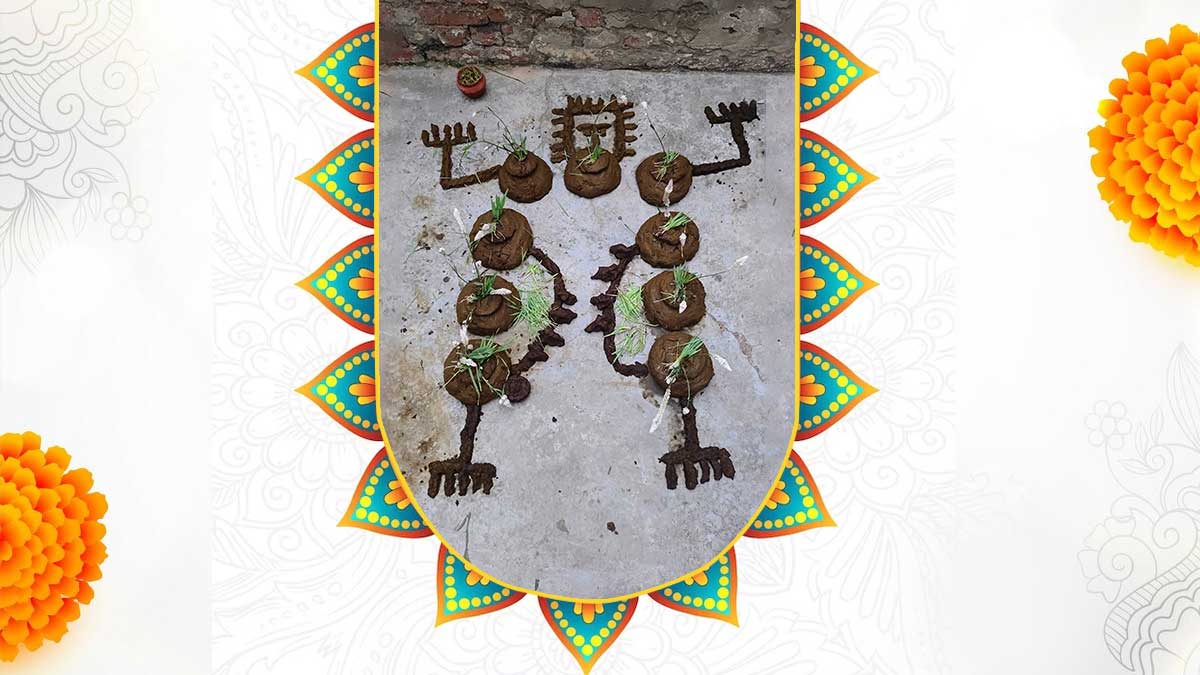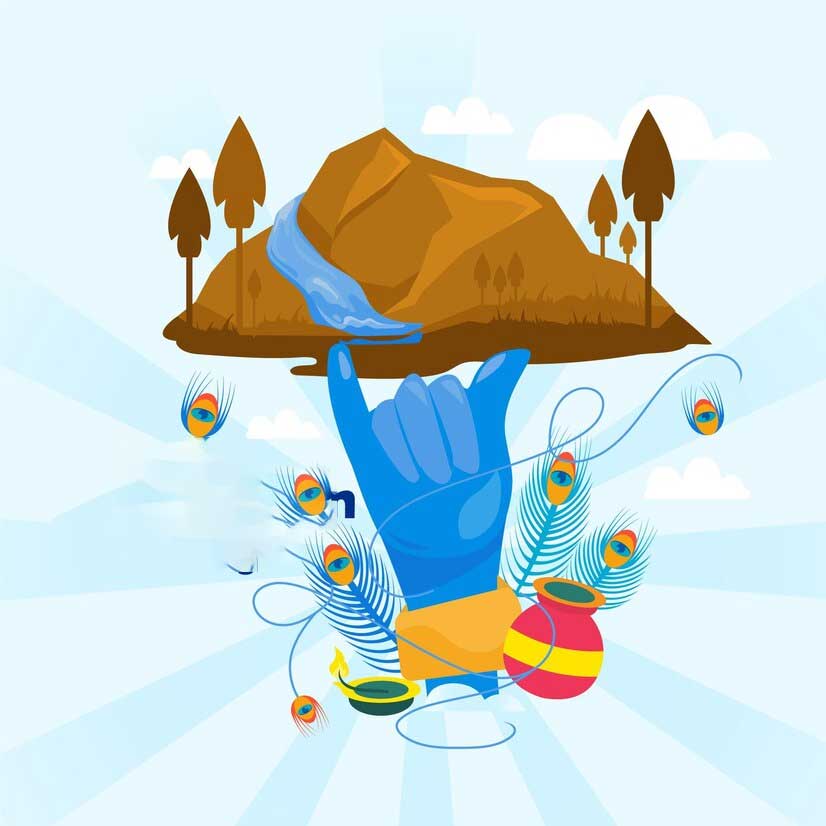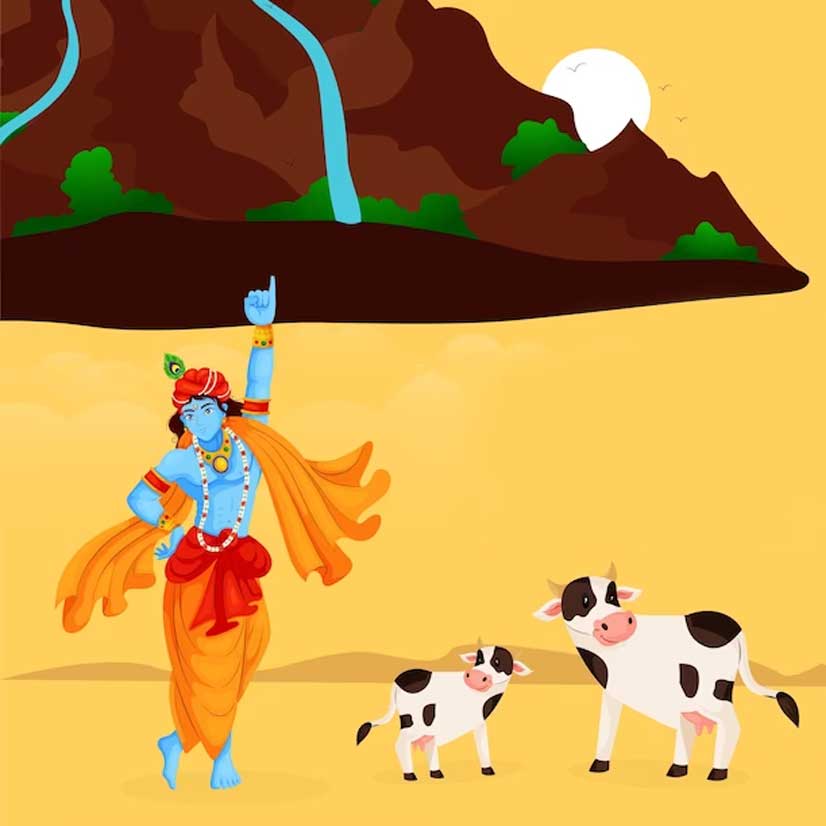
Diwali is a 5-day festival, starting from Dhanteras and ending with Bhai Dooj. A day after celebrating Diwali and bursting crackers, we celebrate Govardhan. On this day, devotees make Lord Krishna’s effigy using cow dung.
In this article, we will tell you the significance of cow dung for this festival and the rituals for veneration to ensure you attract positivity in your home and harmony in your life.

Followers of Lord Vishnu believe that on this day, Lord Krishna lifted the Govardhan mountain in Vrindavan to protect villagers and animals from the wrath of Lord Indra. It established the confidence of villagers in him and burst the egoistic bubble of Indra in which he was living.
Therefore, people worship Lord Krishna and Govardhan Mountain on this day to seek their blessings. They pray for prosperity and food. Many couples perform veneration seeking blessings from God for an offspring.
However, only a few people know why we use cow dung to create an effigy of Lord Krishna holding the Govardhan mountain. We spoke to astrologer Pandit Vinod Soni from Bhopal. He said, "Cow dung is considered a symbol of positivity. The place where cow dung is kept is considered to be the purest. This is because all the Gods and Goddesses reside in the cow. Goddess of wealth Lakshmi is believed to reside in cow dung."
Hence, devotees celebrating Govardhan make effigy using cow dung. What do you do of that cow dung after Govardhan? The expert talked about how to reuse the cow dung instead of throwing it away.
One of the most important aspects of veneration is performing agyaari or offering a mix of pure elements to fire, Gods, and Goddesses. You can use the same cow dung to create flat cylindrical structures, kande.
The expert said that if you burn these tikki-shaped structures, they will ward off negative energy in the house. You will feel positivity and a cleansed aura around you.

Cow dung is an excellent source of fertiliser. When you are dissolving the effigy or have extra dung left, you can use it to prepare fertiliser. You can mix it with vegetable scraps and add to the soil. Your plant will get optimum nutrition from it and grow more rapidly than before.
Don't Miss: Quick Bites For Diwali Night: 5 Quick Snacks For Your Festive Celebrations
In villages, people apply the cow dung on the wall. In homes, they add a layer of cow dung mixed with clay on the floor and walls. They paint it over and make new designs to decorate their home around Diwali.
If you like to use a makeshift burner at home for festive occasions, you can use cow dung tikkis to prepare food. They burn quickly and allow enough heat to burn coal and wood. However, you should make sure to use it outside, or else your entire house will be filled with smoke.
Don't Miss: Kali Puja Pandals In Kolkata That You Must Visit This Diwali

According to the expert, the cow dung should be fresh and extracted from a white cow for Govardhan Puja. You should never use the cow of a pregnant cow. It is believed to be inauspicious for the occasion. You should also ensure that the cow dung is not mixed with impurities.
Celebrate this Govardhan with utmost joy and happiness.
Our aim is to provide accurate, safe and expert verified information through our articles and social media handles. The remedies, advice and tips mentioned here are for general information only. Please consult your expert before trying any kind of health, beauty, life hacks or astrology related tips. For any feedback or complaint, contact us at [email protected].